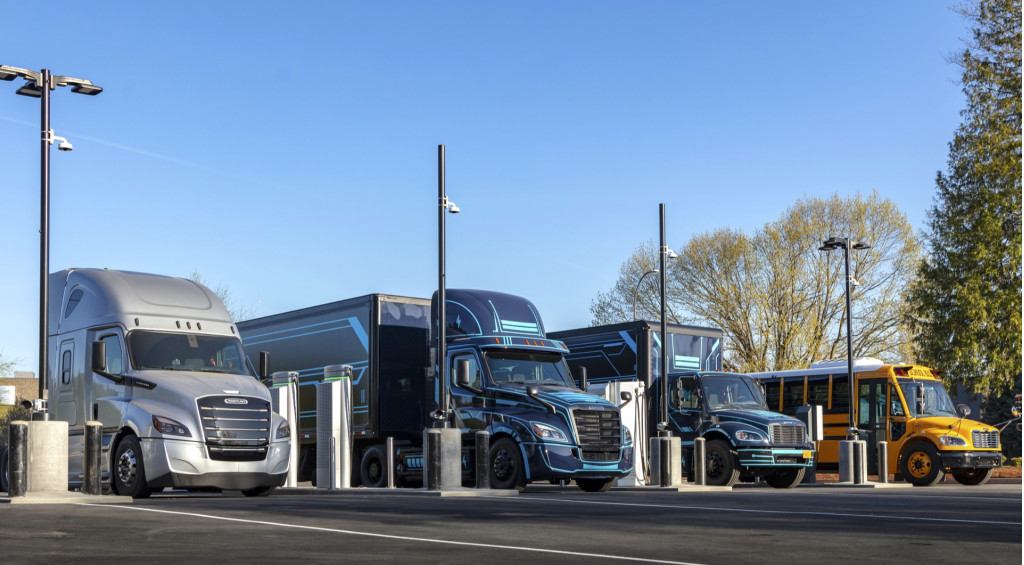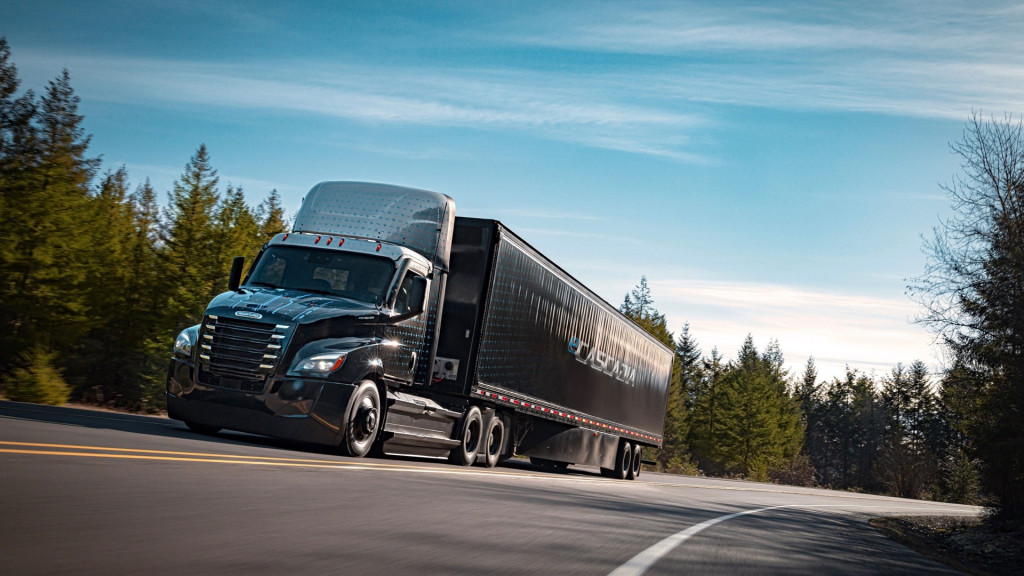Three of the largest commercial truck manufacturers have joined forces on charging infrastructure.
Daimler Trucks North America, Navistar, and Volvo Group North America on Wednesday announced Powering America's Commercial Transportation (PACT), described in a joint press release as a "coalition focused on education and advocacy for accelerating the construction of nationwide infrastructure" for electric medium-duty and heavy-duty trucks.
The three manufacturers, which claim to represent approximately 70% of medium-duty and heavy-duty truck sales in the U.S., all have battery-electric vehicles in production. But they view the lack of charging infrastructure as a major bottleneck to widespread adoption, noting that most charging-infrastructure pushes so far have focused on light-duty passenger vehicles.

Electric Island - Daimler Trucks North America and PGE - Portland OR
Indeed, the Department of Energy lists only nine fast charging stations in the U.S. capable of serving heavy-duty trucks, The New York Times notes. The first, a joint developed of utility Portland General Electric and Daimler Trucks North America called Electric Island, opened in 2021 in Portland, Oregon.
Lack of effective charging infrastructure may be one reason why fewer than 1,000 of the nearly four million EVs on American roads are heavy-duty trucks. But cost may also be an issue. Zero-emission trucks are generally two to three times more expensive than diesel trucks, a difference equivalent to hundreds of thousands of dollars, according to the Times.
Reducing emissions from the nation's commercial truck fleet is a worthwhile goal, though. Transportation is the biggest source of greenhouse gas emissions in the U.S., with trucks, buses, and vans accounting for 29% of that total, the Times reports, citing data from nonprofit Calstart, adding that poorer communities are more likely to suffer from truck pollution because they are more likely to be near industrial areas or highways.

Freightliner eCascadia
But while the big truck makers have embraced electric power—Daimler built its first electric semis for a fleet test back in 2019—and reaped the benefits of Inflation Reduction Act (IRA) incentives, some have also lobbied against tighter emissions standards like the ones set to take effect in 2027.
Tesla, meanwhile, has looked for federal money for a Semi charging route. The automaker has gone it alone on charging for its passenger cars up to this point, building a Supercharger network that is likely one of the factors behind the bestselling Model Y's success.












